A surefire way to future-proof your classic VW is to whip out the engine and fit an electric motor instead. Read on to find out more…
We reported on the predicted demise of fossil-fuelled cars and the switch to electric power in a recent blog here. To be honest, it makes pretty depressing reading, especially if the doom-laden forecast that petrol and diesel engined cars will be pretty much obsolete in a decade or so is to be believed. Hopefully, when the time comes there will be concessions for older classics to enable us to enjoy them for longer. If nothing else, we expect the short timescale mentioned is massively inaccurate. Let’s face it, the car industry – and the classic car world in particular – is huge, so we’re not expecting it to disappear overnight.
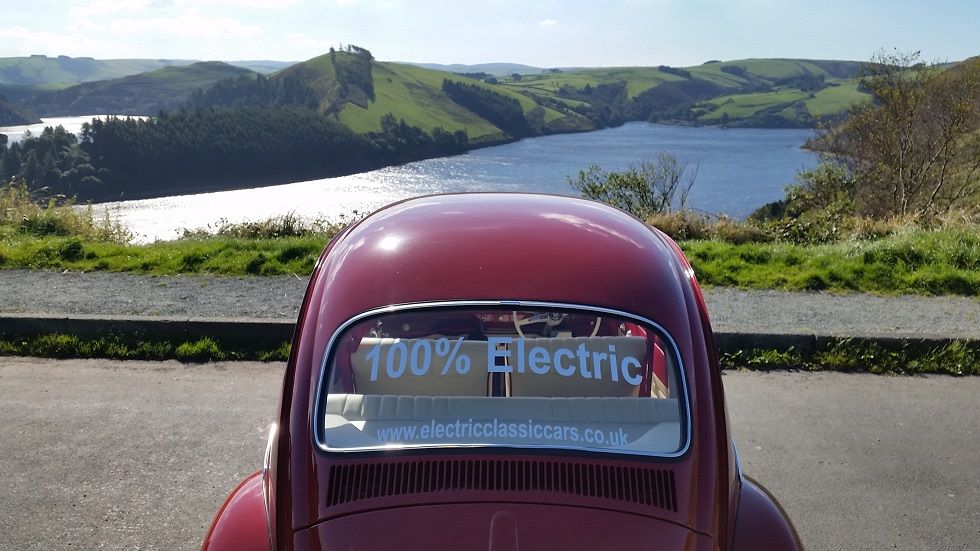
Apocalyptic as they are, such findings have made motorists think a bit more about the alternatives. And by this we mean battery power. The electric car concept is nothing new, but there’s conversions available now in the UK which will enable you to replace your air-cooled engine with an electric motor instead. Everything else stays as it is, and if it weren’t for the lack of an exhaust, visually the car would look indistinguishable from the original. The same goes for the inside, although a charge indicator would inevitably replace the traditional fuel guage on the dashboard. Importantly, the conversion is entirely reversable – so you can always switch back to your old air-cooled engine if a fatal flaw in electric technology is discovered further down the line.
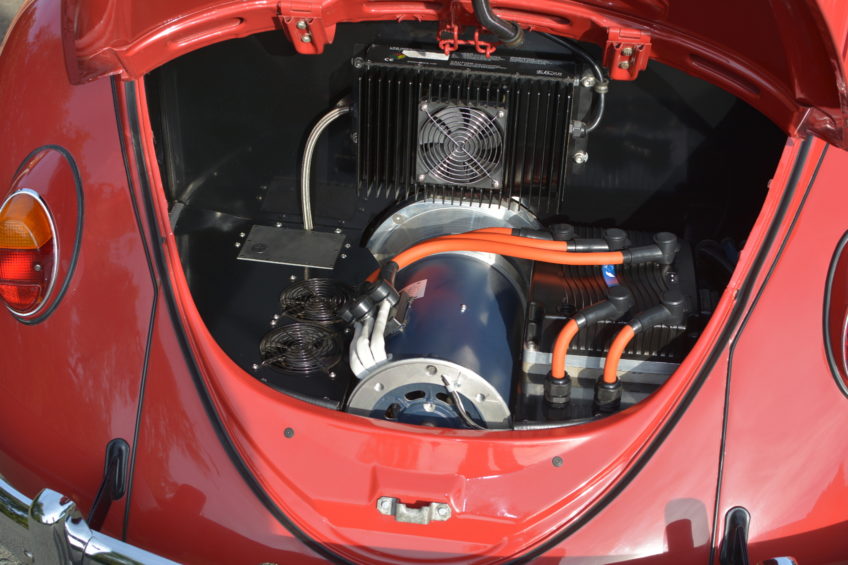
In a nutshell, the conversion to battery power involves removing the petrol tank and engine and bolting on an electric motor directly to the original four-speed VW Beetle gearbox. The lithium-ion batteries which give a total output of 118v, sit under the bonnet (see below) and behind the rear seat. Firms such as Electric Classic Cars (EEC) in Wales do a kit for the Beetle –in fact, their lovely red 1965 electric Bug is pictured here. The conversion takes between a week and a fortnight to do. Typically, the setup includes an AC motor, a controller, battery charger, batteries, battery boxes, cables and all the necessary fittings. A separate, smaller 12V lead acid battery powers the Beetle headlights, windscreen wipers and any other accessories. This battery is charged via a DC (direct current) converter that takes a feed from the lithium-ion batteries. It’s not as large as a traditional car battery, mainly because it doesn’t need to turn over a starter motor. An electric brake servo can be used, or one can be belt driven off the electric motor. With no heater, so ECC offers a ceramic heater, similar to those used in production electric cars, that is powered by the main battery packs.
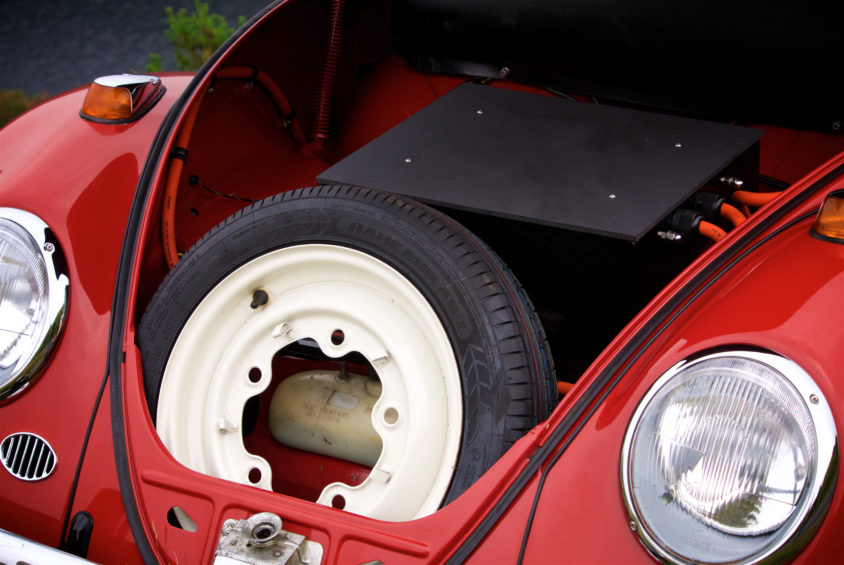
It takes roughly eight hours to recharge the batteries using a standard 10-amp battery charger, or a faster 32-amp charge point can be installed at your home. There are also, increasingly, recharging points available at some motorway service stations, superstores and other city centre locations. The power output from the motor supplied by EEC is 71bhp. But here’s the really impressive bit; there’s 120ft lb of torque available throughout the rev range, which equates to a 0-60mph time of around nine seconds and a top speed of 100mph. Now that’s a fair bit quicker than a stock air-cooled Beetle. Another plus is the lack of maintenance. With very few moving parts, there’s zero engine servicing costs.
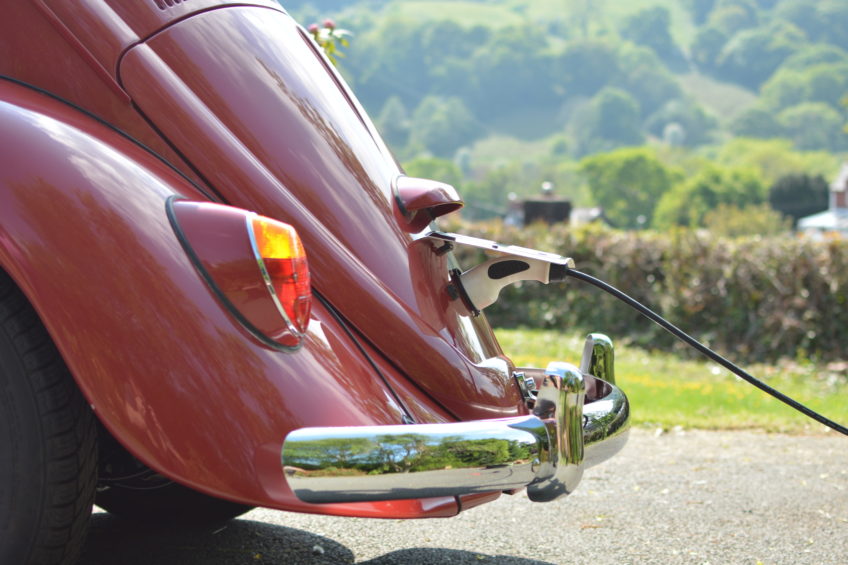
Inevitably, though, there has to be a snag – and sure enough, there are several. The first is cost. At just under £20,000 for the conversion, it’s certainly not cheap. Certainly not cheap enough to appeal to the masses right now. Then there’s the issue of range. Currently (excuse the pun) most standard setups give a range of just 100 miles and with so few charging points available at the moment, that could prove a severe limitation. There is a thing called regenerative braking where upon braking or on the overrun, the electric motor can be turned into a dynamo to feed power back into the batteries and help recharge them. In tests this can add up to 20% more range, depending on driving habits and the terrain – but you still won’t be able to go very far without thinking about your next top up. That said, no doubt with advances in technology, costs are likely to come down and the range will improve, but at the moment these drawbacks will rule out having an electric motor conversion carried out for many.
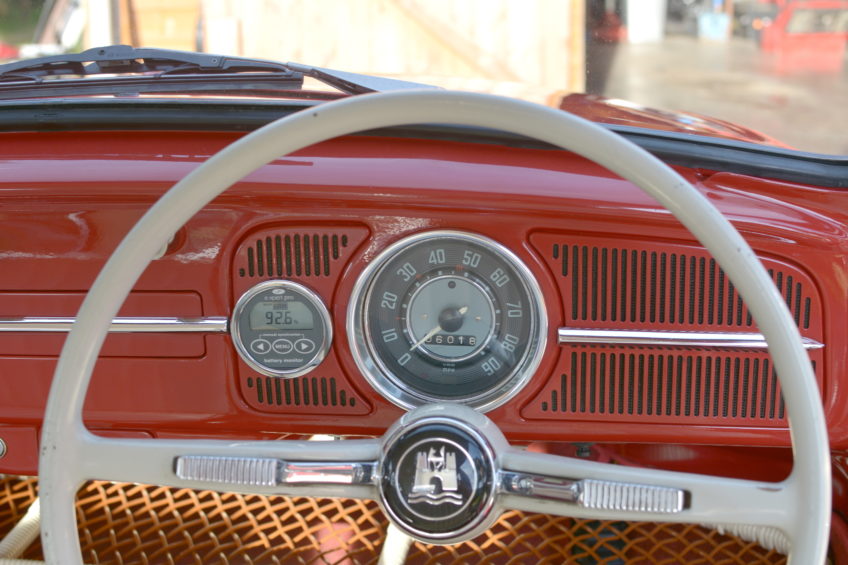
Sure, if in the very worst scenario, combustion engine cars are outlawed completely in a couple of generations’ time, installing an electric motor would allow our children to carry on enjoying our cars for longer. But if that unmistakeable sound of an air-cooled engine is missing, will it be quite the same anyway?
What do you think?
Ian
The opinions expressed here are the personal opinions of the author and do not necessarily represent the views and opinions of VW Heritage


Like I said if they faze out gasoline Solarus Electrics has what we need.
But I’d still rather have the 4 wheel hub electric motors that are charging brakes and drive motors lighter and more room for batteries.
Electric vehicles have been around even before combustion engines were fully developed. It is obvious that petro-dollars and geopolitics have a heavy hand in this paradigm as it perdures to date. Yet it is wise to consider that EV can be produced cost effectively and made affordable to consumers. But the industrial world isn’t ready for it. More so with the oil industry still in the mire/mud of wars and terrorism through magnates/barons dictating the rules of the game. Apart from that I love my revving petrol engine and would surely keep one as a collection jewel in due course. I know someone who at this very moment already owns a roadworthy EV converted for less than GBP1,000.
How about winter use?. Does EV’s runs in the winter?.
My 72 SuperBeetle will be needing an engine rebuild in 2 or 3 years, and it will not get another internal combustion engine. Electric motors are faster, cleaner, and more environmentally responsible.
Does the electric beetle have heat or air? We have harsh winters here and I am worried about not having enough heat during those months…
hi there this des johnson from perth western australia just wanted to know cost
of the electric motor and is there places that export to aust ?? thanks des.